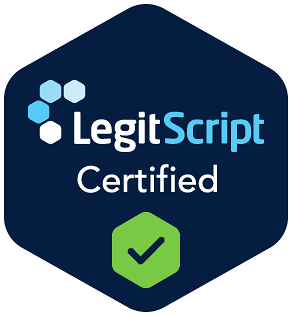For those struggling with substance use or mental health issues, intensive outpatient programs (IOPs) offer flexible treatment, allowing them to live at home while engaging in therapy, support groups, and other recovery-related activities. These programs help participants develop healthier coping skills and address real-world challenges, serving as an intermediary between residential/inpatient and standard outpatient treatment.
At Guardian Recovery—Saddle Brook, our experienced professionals are here to provide the care, support, and guidance necessary for lasting change and design individualized treatment plans to address your unique needs. Contact us today to begin your journey toward a healthier, happier future.
Recovery Starts
Here
Choose recovery and take control of your life, it’s the path to a brighter future filled with health, happiness, and fulfillment.
What Is an Intensive Outpatient Program (IOP) for Substance Use Disorder Treatment?
IOPs are a form of treatment that allows individuals to attend therapeutic sessions several times per week while living at home and managing outside obligations. These are less intensive and structured than residential (inpatient) and partial hospitalization but include similar offerings, such as individual and group therapy and psychoeducation. They are also informed by a holistic, integrated approach to the treatment of addiction and mental health based on comprehensive assessments and personalized plans.
Who Is an Intensive Outpatient Program Suitable for?
Those who are suitable for IOPs typically have a moderate addiction, a stable living situation, a solid support system, and are highly motivated to remain sober. They may also use IOP as a step-down level of care following a residential/inpatient or partial hospitalization program (PHP).
The Benefits of an IOP for Recovery
IOPs offer many benefits for individuals seeking recovery, including:
- Flexibility and accessibility, allowing them to receive treatment while managing other obligations, such as work, school, family time, and additional activities
- Affordability compared to residential/inpatient care, which also includes costs associated with 24/7 supervision, lodging, meals, etc.
- Many of the same offerings as higher levels of care, such as personalized treatment plans, evidence-based therapies, a supportive peer community, relapse prevention strategies, and family involvement
- Ongoing care or gap-free guidance, treatment, and support after higher levels of care have been completed
- Real-life skill application, allowing participants to actively use the skills and coping mechanisms they’ve learned in real-time, helping to build confidence while navigating triggers and overcoming obstacles
The Treatment Process in Our Bergen County IOP
You will be an active participant in your healing process and take concrete steps toward recovery by participating in therapy, learning about addiction, and developing practical coping strategies. We’ll also help you build a supportive network, empowering you with the tools you need for lasting sobriety. This transformative journey begins with a holistic treatment approach personalized to your unique circumstances and needs.
Our Approach to Holistic Treatment in an Outpatient Setting
Holistic addiction treatment focuses on treating the “whole person”, not just substance use itself. Our comprehensive approach addresses the physical, mental, and spiritual aspects of addiction, which means understanding its complex nature and exploring the underlying factors that contribute to it. The goal is to help individuals develop healthier coping mechanisms, foster self-awareness and a sense of purpose, improve their overall quality of life, and achieve long-term recovery.
Individualized Treatment Plans
Individualized treatment plans are a cornerstone of our holistic approach, and we recognize that “one-size-fits-all” programs are less likely to be successful. Key components include:
- Comprehensive assessment, consisting of a thorough evaluation of a client’s substance use history, mental and physical health, family dynamics, social circumstances, vocational and educational background, and personal strengths and weaknesses
- Short- and long-term goal setting, involving the individual and their treatment team, tailored to their specific needs and objectives
- Various interventions, such as cognitive-behavioral therapy, group and family therapy, medication-assisted treatment, relapse prevention, and complementary approaches like art and music therapy, psychoeducation, and life skills training
- Ongoing monitoring, as treatment plans are regularly reviewed and adjusted based on the individual’s progress to ensure treatment continues to be effective and responsive to evolving needs
- Aftercare planning, or a strategy for maintaining sobriety and well-being after formal treatment is completed, often consisting of ongoing therapy, support group participation, medication management, and lifestyle changes
Complimentary Insurance Check
Find Out Today!
"*" indicates required fields
Addressing Mental Health & Co-Occurring Disorders in an IOP
IOPs can effectively treat co-occurring disorders, such as depression and anxiety, simultaneously with addiction through integrated care. This can be achieved through the following:
- A comprehensive approach that recognizes the interrelatedness of the conditions and provides holistic care for both
- Dual diagnosis, which is critical for developing an individualized treatment plan that addresses all disorders effectively
- Medication management to help regulate mood, relieve mental health symptoms, and reduce cravings for substances
- Individual and group therapy sessions for the development of healthy coping skills, management of triggers and cravings, and addressing the underlying issues contributing to both conditions
What To Expect in Intensive Outpatient Treatment
Here are some basic elements you can expect in an IOP:
- Initial consultation and comprehensive assessment
- Personalized treatment plan
- Individual, group, and family therapy
- Psychoeducation and life skills training
- Medication-assisted treatment
- Support group participation
- Progress monitoring and aftercare planning
- Confidentiality, as all treatment programs must adhere to privacy laws
- Active participation and attendance of sessions to work on recovery outside of the program
Our Locations
Our Facilities & Teams Transform Lives
Changing lives by providing comprehensive support and rehabilitation, empowering individuals to overcome addiction and regain control of their health and well-being.
Frequently Asked Questions About Our IOP
IOPs may be suitable for those who don’t require 24/7 care, have a solid support system and stable living situation, but need more structured treatment than standard outpatient offers. However, the best way to determine if this level of care may be right for you is to talk to an addiction specialist who can assess your needs, symptoms, and circumstances and provide a recommendation.
IOPs are less structured, more flexible, and often more cost-effective than higher levels of care, including residential/inpatient treatment (24/7 supervision and support) and partial outpatient programs (PHPs or day treatment). However, they are also more intensive and meet more frequently than standard outpatient programs.
No. As the name suggests, IOPs are similar to outpatient programs but are more intensive, providing a structured environment with a set schedule of therapy sessions, group activities, and educational workshops. Those who find IOP suitable may also use it as an intermediary level of care between a residential or partial hospitalization program and standard OP.
Guardian Recovery’s IOP programs vary but typically take place 3–5 days a week for 3–5 hours per session. Your stay in this stage of treatment is based on what is deemed clinically appropriate, but IOP typically lasts at least 60 days.
Following your IOP, your personalized aftercare plan will guide your continued treatment and recovery. This plan, tailored to your specific needs and goals, may consist of standard OP, ongoing therapy, peer support, medication management, and the involvement of your family and community.
SELF-ASSESSMENT:
Do I Have an Addiction Issue?
Disclaimer: Does not guarantee specific treatment outcomes, as individual results may vary. Our services are not a substitute for professional medical advice or diagnosis; please consult a qualified healthcare provider for such matters.
- U.S. Department of Labor. (n.d.). MHPAEA: A law that protects your mental health & substance use disorder benefits.
- U.S. Department of Health and Human Services. (2022). About the Affordable Care Act.













